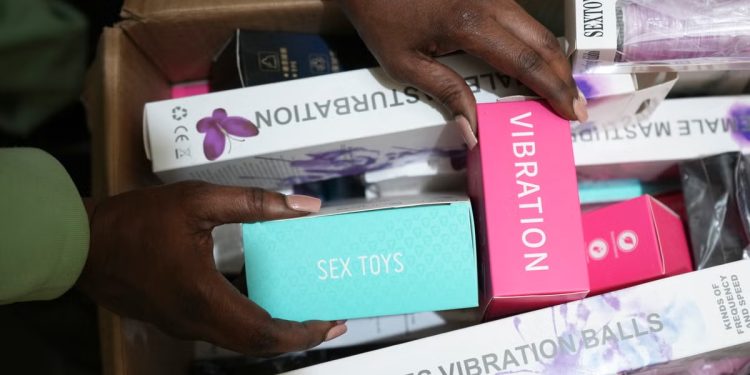A Ugandan tourist, who spent 24 days in a Zimbabwean prison for possessing a sex toy, has been acquitted and is now set to be deported.
Tom Ssekamwa, 24, was arrested on August 2 in Masvingo, a city 292km south of Harare, along with Czech national Lucas Slavik. The arrests occurred during a government crackdown on dissent ahead of a regional summit, which saw over 200 opposition figures and activists detained.
This week, magistrate Isaac Chikura dismissed the charges against Ssekamwa, which included criminal nuisance and violating the Censorship Act. The charges stemmed from the discovery of a rubber sex toy in Ssekamwa’s luggage during a police search. The magistrate ruled that Ssekamwa’s possession of the item did not pose a threat to public order or cause a disturbance, noting that the toy was not intended for public display.
Ssekamwa’s lawyer, Knowledge Mabvuure of Zimbabwe Lawyers for Human Rights (ZLHR), stated that his client is currently in the custody of immigration authorities, awaiting deportation. The process has been delayed as Ssekamwa’s phone, which he needs to access funds for purchasing an airline ticket, remains with the police.
Lucas Slavik, Ssekamwa’s travel companion, faced allegations of inciting public unrest after allegedly filming a video claiming that Masvingo lacked water and electricity. Although additional charges against Slavik were dropped, he was acquitted and deported last week.
Many parts of Zimbabwe experience extended power outages due to reduced water levels at Kariba Dam, the country’s primary source of hydropower.
Roseline Hanzi, another representative from ZLHR, expressed concern that these arrests could damage Zimbabwe’s reputation as a tourist destination. She highlighted that the incident could have been avoided and warned that it might lead to international legal disputes if countries believe their citizens’ rights have been violated.
The crackdown leading up to the Southern African Development Community (SADC) Summit in Harare resulted in the arrest of over 200 opposition members and civil society figures, whom the government accused of plotting to disrupt the event.



